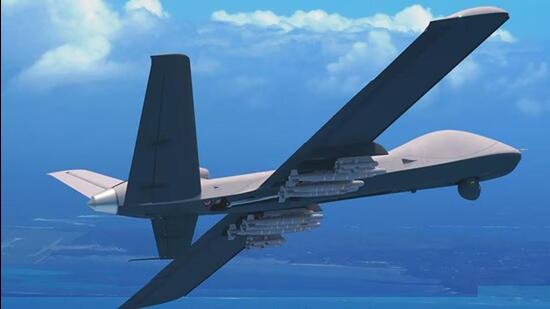New Delhi: India and the European Union (EU) have conducted their first counter-terrorism exercise aimed at protecting critical infrastructure and soft targets from emerging threats from unmanned aerial systems (UASs) and for drawing up procedures for integrated counter-drone operations.
 The three-day training programme concluded on Wednesday. (Representational image)
The three-day training programme concluded on Wednesday. (Representational image)
The three-day training programme, which concluded on Wednesday, brought together senior officers, instructors and technical experts from India’s National Security Guard (NSG) and the EU’s High Risk Security Network (HRSN), and focused on the use of advanced UAS and counter-UAS capabilities, the EU said in a statement.
Defence and security cooperation, including collaboration on counter-terrorism initiatives, between India and the EU has grown rapidly in recent years, alongside efforts to ramp up trade and economic ties. Besides conducting joint naval exercises in the Indian Ocean, the two sides regularly engage in counter-terrorism dialogues, with the most recent round held in Brussels on September 9.
The EU HRSN – a specialised European platform of 28 units from 21 EU member states – sent a team of UAS and C-UAS instructors and technical experts to the Manesar headquarters of NSG, the country’s elite counter-terrorism force that led the training with its extensive experience in detecting, tracking and neutralising hostile drones.
The programme blended tactical and technological training and culminated in a joint exercise designed to strengthen interoperability and set the foundation for future collaboration. “It strengthened mitigation skills and familiarised participants with deployment models for major events,” the statement said.
The participants also discussed the future trajectory of drone threats, including swarm and autonomous systems and the need for advanced detection and neutralisation technologies such as artificial intelligence, sensor fusion, directed energy and kinetic countermeasures.
The special forces training on UAS counter-terrorism tactics in urban environments, combined with a joint tactical simulation exercise, allowed NSG and HRSN units to test and strengthen real-world responses. “The activity will result in the drafting of standard operating procedures for integrated drone and counter-drone operations in various settings, and an Engagement Decision Matrix tailored to protect mass gatherings and critical infrastructure,” the statement said.
EU ambassador Hervé Delphin said both India and EU member states have been exposed to direct and deliberate drone-related threats. “This joint training shows how the EU and India are turning commitment into action, working side by side to keep our citizens safe,” he said. “Such threats evolve rapidly, as part of hybrid tactics. Only swift and coordinated responses will keep us ahead.”
The proliferation of UAS and their misuse by non-state actors poses serious security challenges. Commercial drones have advanced rapidly in technology and accessibility, making them inexpensive tools that have been exploited by violent extremists for purposes ranging from surveillance to carrying out attacks.
The counter-terrorism cooperation was facilitated by the EU’s “Enhancing Security Cooperation In and With Asia and the Indo-Pacific” project, and builds on recent Joint Communication on a New Strategic EU–India Agenda, which prioritises collaboration on counter-terrorism. This training was also a follow-up to the India-EU Track 1.5 roundtable on countering terrorist exploitation of UAS held in February 2024.